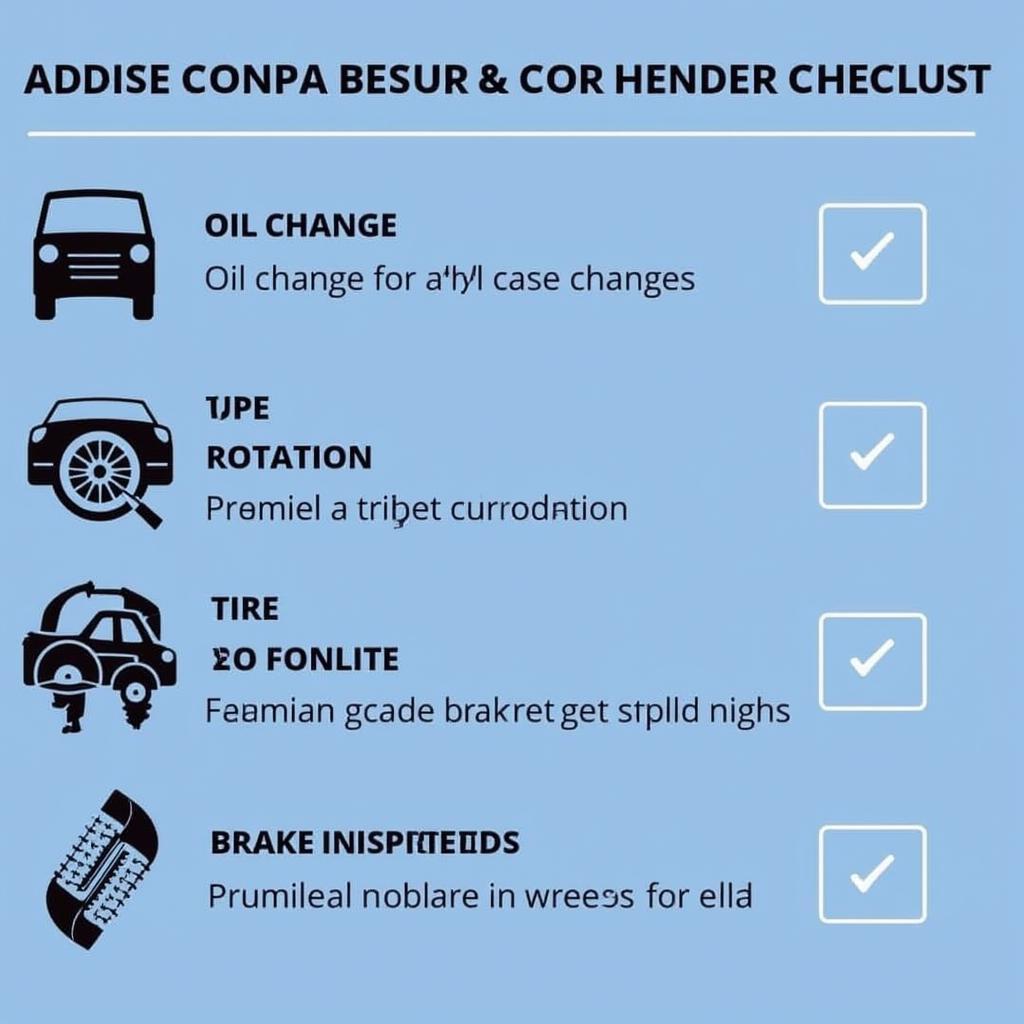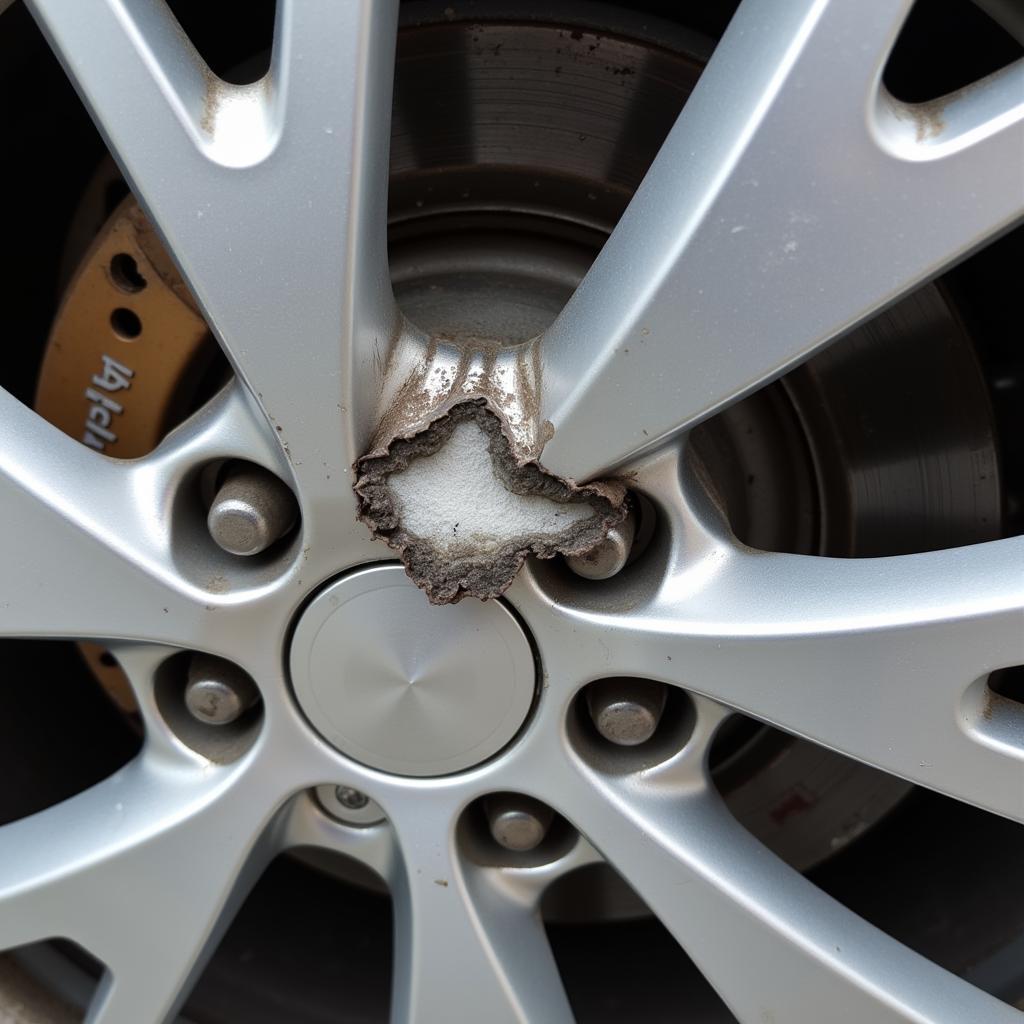Scheduling car maintenance is crucial for ensuring vehicle longevity, performance, and safety. Neglecting regular upkeep can lead to costly repairs, reduced fuel efficiency, and potentially dangerous driving conditions. This guide will delve into the importance of scheduled car maintenance, providing valuable insights for car owners, repair shop managers, and automotive technicians.
Understanding the Importance of Scheduling Car Maintenance
Regular maintenance, scheduled appropriately, addresses minor issues before they escalate into major problems. This proactive approach saves you money in the long run and contributes to a safer and more enjoyable driving experience. Think of it like going to the dentist for regular checkups – it’s much better to catch a cavity early than to wait until you need a root canal.
Why Scheduled Maintenance Matters
- Enhanced Safety: Regular checks ensure critical components like brakes, tires, and steering are in optimal condition, minimizing the risk of accidents.
- Improved Performance: A well-maintained engine runs more efficiently, providing better fuel economy and overall performance.
- Increased Longevity: Following a car maintenance schedule helps prevent premature wear and tear, extending the life of your vehicle.
- Higher Resale Value: A car with a documented maintenance history is more attractive to potential buyers, commanding a higher resale price.
 Car Maintenance Checklist
Car Maintenance Checklist
Creating a Car Maintenance Schedule
A well-structured car maintenance schedule should be tailored to your specific vehicle and driving habits. Consult your owner’s manual for the manufacturer’s recommended maintenance intervals. However, factors like driving conditions and mileage should also be considered.
What to Include in Your Schedule
Your car maintenance schedule should encompass routine checks and replacements of essential components. Here’s a general overview:
- Oil and Filter Changes: Every 3,000-5,000 miles depending on oil type and driving conditions.
- Tire Rotation and Pressure Checks: Every 5,000-7,500 miles to promote even tire wear.
- Brake Inspections: Every 10,000-15,000 miles or as needed.
- Fluid Top-offs: Regularly check and top off essential fluids like coolant, brake fluid, and power steering fluid.
- Air Filter Replacement: Every 15,000-30,000 miles or as needed.
- Spark Plug Replacement: Every 30,000-100,000 miles depending on the type of spark plugs.
- Timing Belt Replacement: Consult your owner’s manual for the recommended interval.
“A consistent maintenance schedule, following manufacturer guidelines, is the best preventative medicine for your vehicle,” advises Robert Thompson, Senior Automotive Engineer at Apex Automotive Solutions.
Scheduling Car Maintenance: Tips for Success
Successfully scheduling car maintenance requires organization and a proactive approach. Here are some helpful tips:
- Set Reminders: Use your phone’s calendar or a dedicated app to remind you of upcoming maintenance tasks.
- Keep Records: Maintain a detailed log of all maintenance performed, including dates, mileage, and services completed.
- Find a Trusted Mechanic: Establish a relationship with a reliable mechanic who understands your vehicle’s needs.
- Address Issues Promptly: Don’t ignore warning signs or unusual noises. Addressing issues early can prevent more significant problems down the line.
- Budget for Maintenance: Set aside funds specifically for car maintenance to avoid unexpected expenses.
Why is Following a Car Maintenance Schedule So Important?
Following a car maintenance schedule is paramount for ensuring the safety, reliability, and longevity of your vehicle. It’s an investment in your peace of mind and your wallet.
“Don’t wait for something to break before you fix it. Preventative maintenance is key to minimizing downtime and maximizing the life of your vehicle,” says Maria Sanchez, Lead Technician at Auto Expert Services.
Conclusion
Scheduling car maintenance is not merely a suggestion; it’s an essential practice for responsible car ownership. Following a well-defined maintenance schedule, tailored to your specific vehicle, contributes significantly to its performance, safety, and longevity. By adhering to a regular maintenance regimen, you can avoid costly repairs, extend the life of your car, and ensure a safer driving experience. Contact AutoTipPro at +1 (641) 206-8880 or visit our office at 500 N St Mary’s St, San Antonio, TX 78205, United States for any assistance or questions regarding scheduling car maintenance.
FAQ
- How often should I change my car’s oil? Generally, every 3,000-5,000 miles, but consult your owner’s manual.
- What are the signs of worn brakes? Squealing or grinding noises, a spongy brake pedal, or vibrations when braking.
- How do I check my tire pressure? Use a tire pressure gauge and compare the reading to the recommended pressure listed in your owner’s manual or on a sticker inside the driver’s side doorjamb.
- Why is it important to rotate my tires? Tire rotation promotes even wear, extending tire life and improving handling.
- What should I do if my check engine light comes on? Have the vehicle inspected by a qualified mechanic as soon as possible.
- How can I find a reliable mechanic? Ask for recommendations from friends, family, or online reviews.
- Is it necessary to follow the manufacturer’s recommended maintenance schedule? Yes, following the manufacturer’s recommendations helps ensure your vehicle’s warranty remains valid and that your car receives the proper care.





Leave a Reply